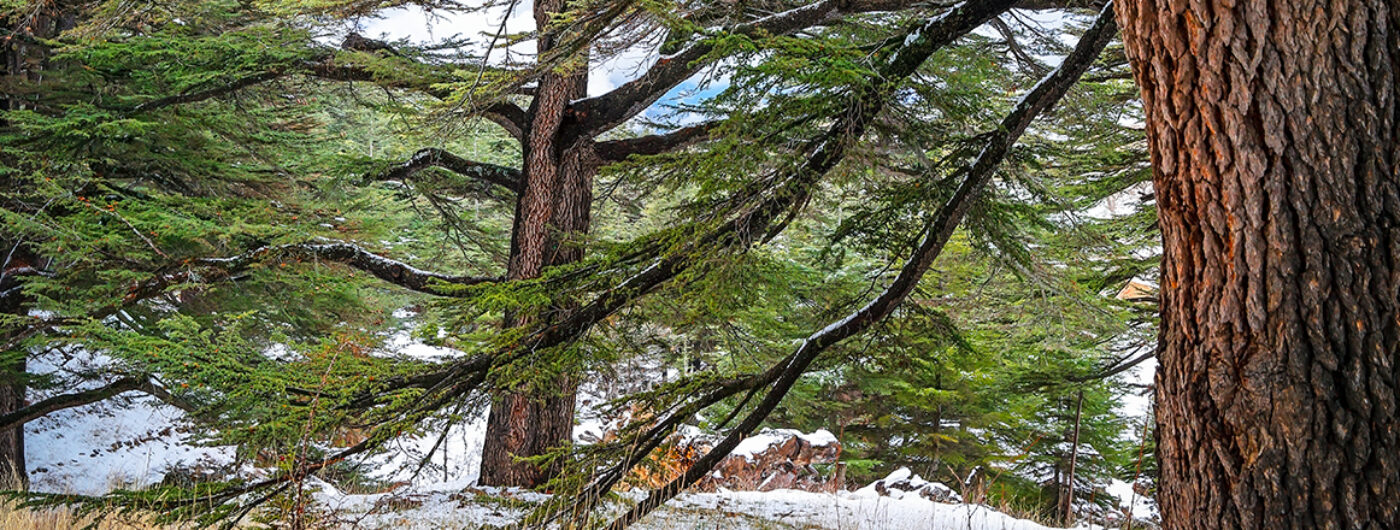
UfM on International Day of Forests: Scaling up forest and landscape restoration in the Mediterranean
- The Mediterranean region has more than 25 million hectares of forests and about 50 million hectares of other wooded lands.
- Protected forest areas cover 9 million hectares, representing 4.3 percent of the region’s total surface area.
- The Union for the Mediterranean (UfM) and the Food Agriculture Organisation (FAO) of the United Nations (UN) will launch a project to restore biodiversity in the Mediterranean through forest and landscape restoration, on 1 April at the 6th Mediterranean Forest week (Lebanon)
Barcelona, 20 March 2019. The Mediterranean basin is the world’s second largest biodiversity hotspot: rich in plant diversity containing some 25 000-plant species. Mediterranean forests and other wooded lands in the region make vital contributions to rural development, poverty alleviation and food security, as well as to the agriculture, water, tourism, and energy sectors. Yet, protected areas cover only 9 million hectares, representing 4.3 percent of the region’s total surface area. The UfM Secretariat, in joint efforts with the Food and Agriculture Organization (FAO) of the United Nations (UN), are launching the project “Scaling up forest and landscape restoration to restore biodiversity and promote joint mitigation and adaptation approaches in the Mediterranean”. The project will be initially implemented in Lebanon and Morocco.
Funded by the International Climate Initiative of the Federal Ministry for the Environment, Nature Conservation and Nuclear Safety (BMU) of Germany, the implementation of this project will contribute to the restoration of ecosystems, adaptation to climate change and preservation of biodiversity. At the same time, this will have a direct impact on the local population, especially in rural areas benefitting from richer ecosystems. The project was endorsed by the 43 countries of the Union for the Mediterranean (UfM) in December, 2018. It involves multiple partners in the region and foresees, from its very initiation, a potential implementation in other Mediterranean countries.
The project will run over a four-year period, with both a regional and a national level. At the national level, activities will be conducted in preselected sites in Morocco and Lebanon, with the aim to implement Forest and Landscape Restoration. At the regional level, technical assistance and capacity-building activities will be offered to the UfM Member States willing to implement Forest and Landscape Restoration in their own countries to achieve their National Determined Contributions in the context of the Paris Agreement. The 6th Mediterranean Forest Week of Lebanon (Broummana, 1-5 April, 2019) will provide the opportunity to present the regional context of the project.
Miguel García-Herraiz Roobaert, UfM Deputy Secretary General for Environment and Water: “The Mediterranean region includes more than 25 million hectares of forests and about 50 million hectares of other wooded lands. Yet, social and institutional factors are as important as biological ones in the construction and implementation of these projects. With this project, we are building innovative approaches to land management, which are instrumental to achieve the National Determined Contributions (NDCs) that governments have submitted in the context of the Paris Environment Agreement.”
Tiina Vähänen, Chief, Forestry Policy and Resources Division, from FAO of the UN: “In line with the recently adopted international UN Decade on Ecosystem Restoration 2021-2030, the 6th Mediterranean Forest Week in Lebanon offers an opportunity for Mediterranean countries to scale up regionally the restoration of degraded ecosystems to fight climate change and promote biodiversity, water supply and food security. With this project funded by the International Climate Initiative the Mediterranean region will enhance national, regional capacities and political will to successfully plan, implement and monitor large-scale programmes mainstreaming Forest and Landscape Restoration as a key option to achieve the National Determined Contributions in the context of the Paris Agreement.”
Indeed, forests have a major role to play in combatting as well as improving resilience to climate change. This is a major constraint and cause of Mediterranean forest degradation. Theses common challenges will be addressed, and best practice examples will be shared between countries in order to find solutions to the ever-decreasing forest lands. Participation in the regional component is open to all UfM countries in close coordination with the FAO Committee on Mediterranean Forestry Questions-Silva Mediterranea.
More information
- Project’s fact sheet
- Policy framework: The project follows up on the recommendations of the UfM Ministerial Meeting on Environment and Climate Change (May 2014).

